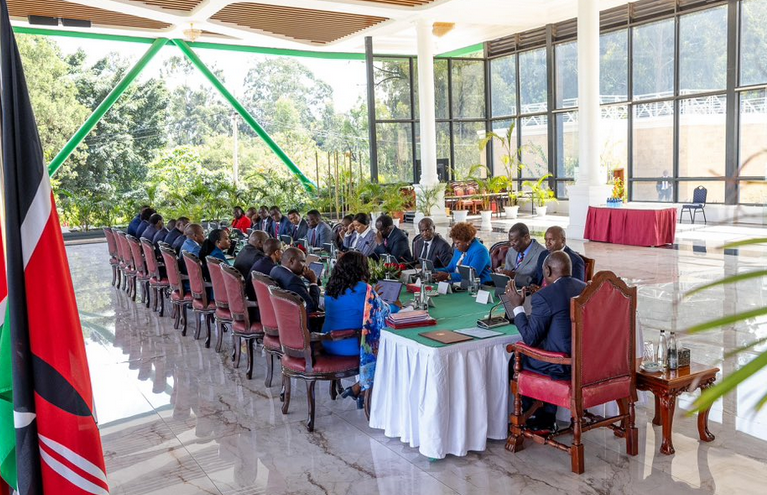
 President William Ruto chairs a cabinet meeting on April 29, 2025/PCS
President William Ruto chairs a cabinet meeting on April 29, 2025/PCS
The Cabinet has approved the Finance Bill 2025, which has a focus on sealing tax loopholes rather than introducing new taxes.
“The Bill seeks to minimise tax-raising measures,” read the Cabinet statement sent to newsrooms after the meeting chaired by President William Ruto at State House, Nairobi.
Instead, the Cabinet said the government aims to enhance revenue through administrative efficiency.
Key changes include streamlining tax refunds, tightening tax dispute laws, and amending key tax acts to reduce evasion.
“Small businesses will be allowed to deduct the cost of tools and equipment in full in the year of purchase.”
Last year, the widely unpopular Finance Bill 2024 resulted in massive youth-led riots, leading to the death of scores of people and an attack on Parliament, with rioters setting part of the building on fire.
On June 26, 2024, Ruto declined to assent to the Finance Bill 2024. In referring the Bill for reconsideration by the National Assembly, the President took note of the widespread expression of dissatisfaction by members of the public on the contents of the Bill.
The President referred the Bill back to the National Assembly for reconsideration with a recommendation to delete all clauses in the Bill. This was in exercise of powers conferred to him by the Constitution of Kenya 2010 in Article 115(1)(b).
The Bill was set to take effect on 1 July 2024 after presidential assent, having successfully passed through all the other stages of the legislative process.
In the wake of the President’s decline to assent to the Finance Bill 2024, the Speaker of the National Assembly issued a Notification referring the President's Memorandum of Referral to the Departmental Committee on Finance and National Planning to consider the Memorandum's reservations and recommendations.
New tax measures were then to be introduced through a new Finance Bill or Miscellaneous Tax Amendments Bill that has to undergo the mandatory public participation process before being enacted into law.














